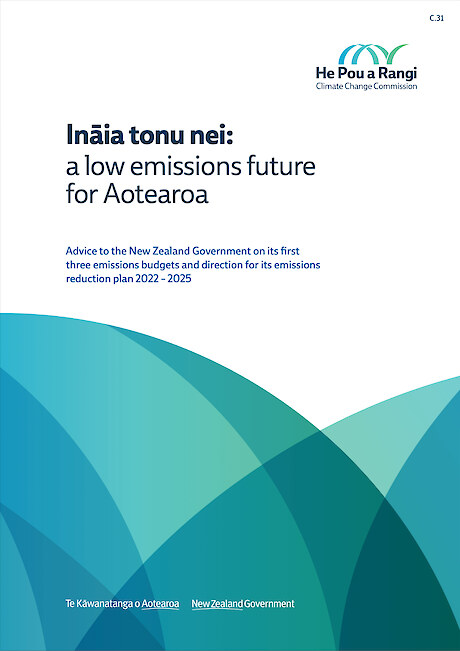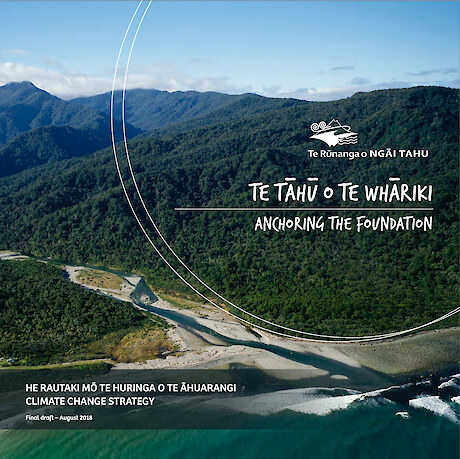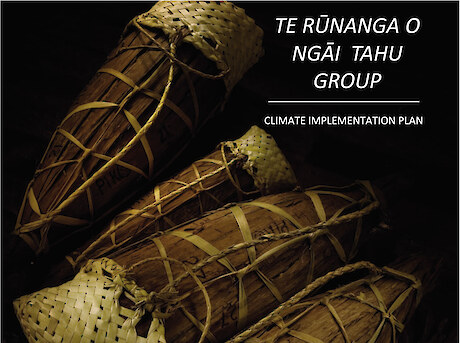He Pou a Rangi - Climate Change Commission
The Climate Change Commission is an independent crown entity that has been established to deliver evidence-based advice to guide climate change action for Aotearoa.
Find out more about the Climate Change Commission.
Ināia tonu nei: a low emissions future for Aotearoa
Ināia tonu nei: a low emissions future for Aotearoa (PDF, 7.38 MB) is the first report from the Climate Change Commission - giving advice to the Government on climate action in Aotearoa. The advice in this report details the paths Aotearoa can take to meet its climate targets.
Critical outcomes
The Commission identifies critical outcomes New Zealand will need to achieve:
- Expanding native forests to build a long-term carbon sink.
- Increasing the number of people who walk, cycle, use public transport and emerging low emissions options like e-scooters and e-bikes rather than petrol cars.
- Accelerating EV uptake and phasing out light ICE engine vehicle imports sometime between 2030-2035 – consistent with the phase out dates being set by a growing number of countries – and importing more efficient ICE vehicles, including conventional hybrids, while the EV supply grows.
- Improving the efficiency of heavy transport and freight, including through freight optimisation, and increasing the share of rail and coastal shipping. Scaling up low emissions fuels like biofuels or hydrogen-derived synthetic fuels. Biofuels are particularly useful in decarbonising the current vehicle fleet. Increasing energy efficiency in homes, commercial, and public buildings. Phasing out new fossil gas connections and switching existing fossil gas appliances to low emissions fuels.
- Eliminating coal use in commercial and public buildings by 2030, and for food processing before 2040.
- Expanding the electricity system in a timely, reliable, and affordable way, while managing the opposing risks of under- or over-investing in the system. Over-investment risks increasing the delivered cost of electricity or stranded assets, which would disincentivise electrification. Under-investment risks delaying progress on wider decarbonisation efforts in transport, industry, and buildings. Adopting farm management practices that will reduce biogenic methane and nitrous oxide emissions.
- Developing and deploying new technologies that could reduce biogenic methane emissions from agriculture.
- Opening up opportunities for more conversion to lower emissions production systems and land uses, including horticulture.
- Increasing the availability of low-waste and low emissions options for businesses and consumers when purchasing and disposing of goods.
Read about supporting evidence for recommendations in the Climate Change Commission report.
Ngāi Tahu - addressing climate change
Climate Change Strategy
In 2018 Ngāi Tahu released: He Rautaki Mō Te Huringa O Te Āhuarangi Climate Change Strategy (PDF, 7.47 MB).
The Strategy provides direction across the whole spectrum of Ngāi Tahu interests, assets, and activities, because the impacts of climate change will touch them all.
In order to future-proof Ngai Tahu, it is important to:
• Understand the changes and challenges that are coming.
• Implement ways to meet those challenges, make good decisions, and secure the best possible future for our people and our takiwā.
Find out more about the Ngāi Tahu Climate Change Strategy.
Climate Implementation Plan
In June 2021, Ngāi Tahu released: Te Rūnanga o Ngāi Tahu Group: Climate Implementation Plan (PDF, 3.76 MB). 
The plan gives an overview of the Ngāi Tahu emissions profile and eight kaupapa:
- Greenhouse gas emissions
- Marae and whānau resilience
- Water
- Operational emisssions
- Ecosystems
- Waste
- Renewable Energy
- Education
